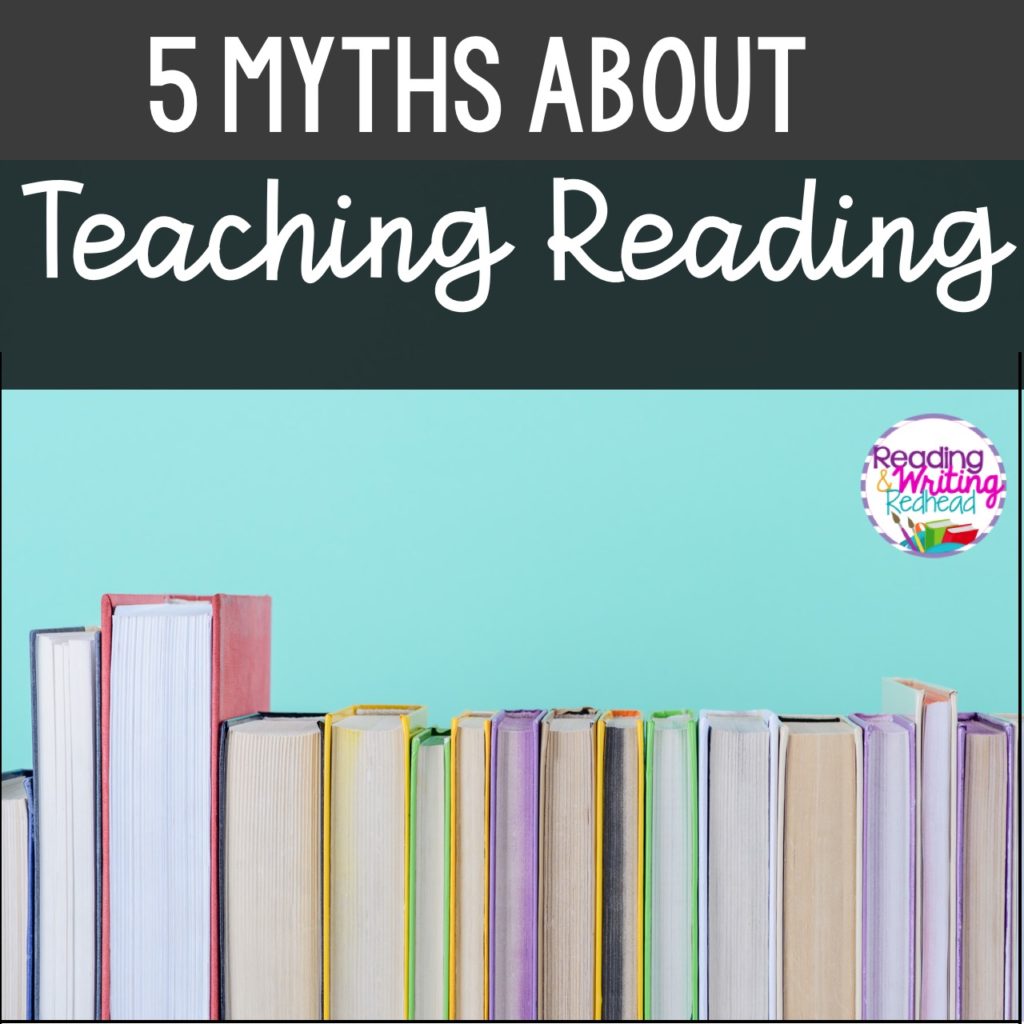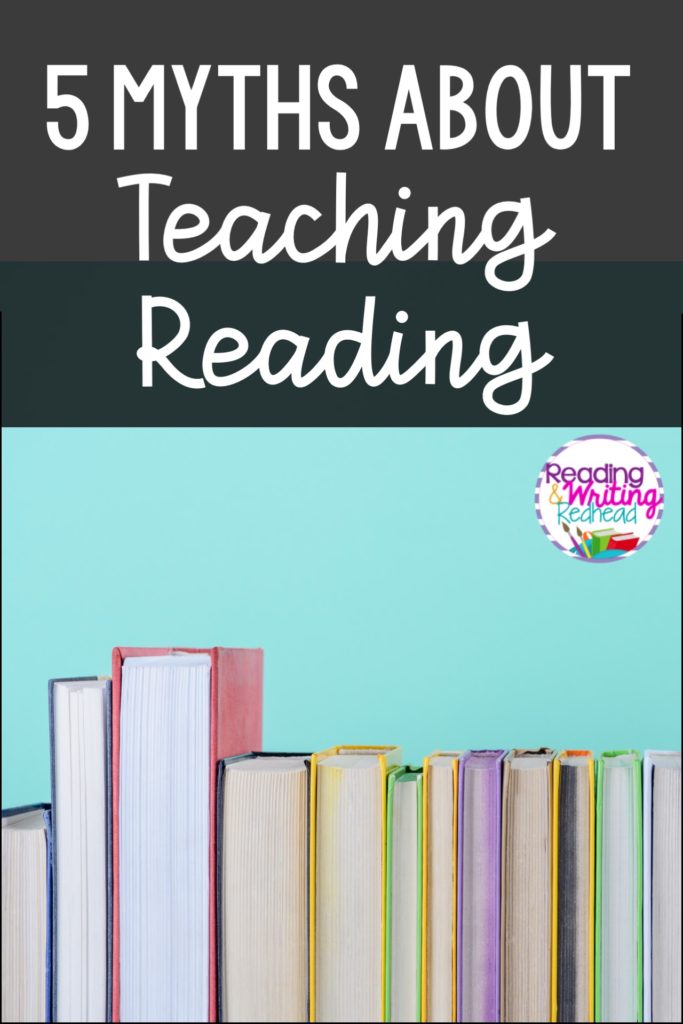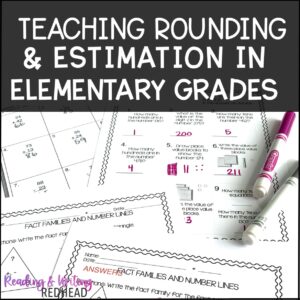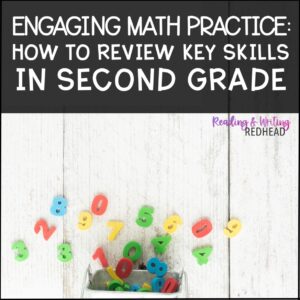
Let’s debunk 5 frustrating myths about teaching reading! As a teacher, you know there are many more myths, but you don’t want to read all day! Do you need to help debunk any of these myths at your school? Also, a helpful freebie is included. Keep reading!
A Reading Program Covers Everything
This is the first of the 5 frustrating myths about teaching reading. Even though reading programs (I am talking about anthology based programs like Reading Street, Wonders, Journeys, Treasures, etc.) seem to have TONS included, they just can’t meet the needs of all students. The last anthology I used for example, started the year having second grade students practice spelling CVC words. Now, of course, some students will need that, but I always found that was much too easy of a skills for at least half my class.
Also, these anthologies often do not address phonemic awareness at all, which is a big gap in reading instruction. Treasures and Journeys (the last versions I saw) only provided 3 levels of guided reading books for students, which is nowhere near the range of levels that teachers need to address.
With that being said, teachers will need additional curriculum and books to support students in those areas, or will need to differentiate themselves, which is not always an ideal solutions! For lots of tips for differentiating when you use a reading anthology, take a look at this blog post.
Learning to Read is Natural
Yes, a few children here and there just easily pick up on things. But reading in not like learning how to crawl or talk. It’s not natural and instead is a skill to be acquired. Many children need repetitive and methodical instruction. Phonemic awareness and phonics need to be taught thoroughly. and teachers need support to do so!
You Learned All You Need to Know in your Teacher Training Program
Well, we all probably know that is not true! I went to a college with a great reputation for my elementrary education degree, but much of the instruction I received was not pracytical. I did have a wgole class on great children’s literature though; however, much of those texts are now outdated. I learned some about teaching guided reading.
Most of what is practical and important on a day to day basis about teaching reading is eitehr learned on the fly, from mentor teachers or colleagues, or found by new teachers being resourceful and reading useful and supportive blog posts themselves. I’d like to see school districts step up for new teachers and provide more of this officially so it’s not such a patchwork.
All You Need is to do is Emphasize Learning to Love Reading
Lets’s break down the fourth of the 5 frustrating myths about teaching reading! Okay, yes, learning to enjoy and love reading is super important and invaluable. My brother didn’t learn to read quickly but he truly loves reading and probably reads more than me as an adult. Realistically, help students by teaching the building blocks of reading, encourage and teach them about growth mindset, and also encourage them to love reading and that will be more of a winning combination!
Guessing at Words is a Good Strategy
For many years, teachers have marked what strategies students use (MSV cueing system( on their running records. If students guess based on the first sound or picture, but read the wrong word, historically, it may have been seen as okay – they are using context and it doesn’t change the meaning of the text; ie “The dog ran to his bowl” instead of “The puppy ran to his bowl”.
Research has shown that this is not a truly successful way to attack texts. Students who have solid backgrounds in phonics and phonemic awareness and who can tap out words and use skills like onset and rime to help them are more successful in reading over the long term. This is a slow change in education and many schools and teachers haven’t totally gotten on board.
If you use the Journeys second grade program, I created my own supplemental resources to help me differentiate. You may like trying out this freebie to accompany the story Animals Building Home to help students practice vocabulary skills. Click here or on the image to grab it.
Another blog post you might like:
If you want to learn more, stay tuned for more blog posts that will help you gather more information about how to help your schools debunk these myths and become the best reading teacher you can be!
~Bex






